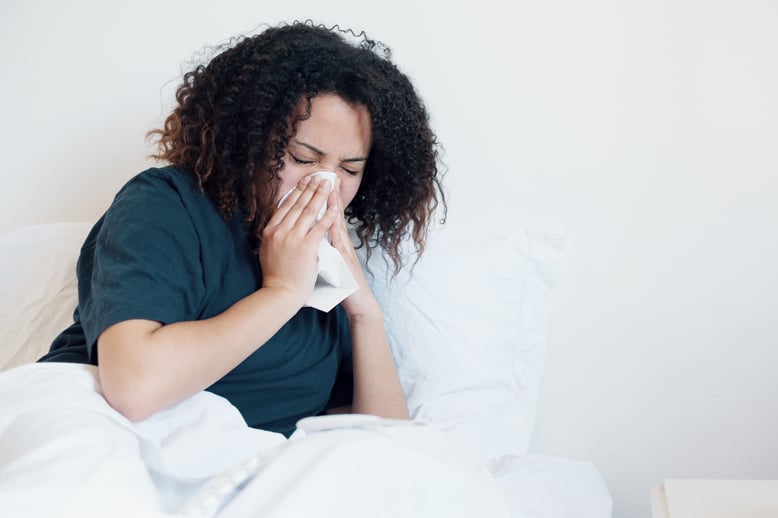 Nobody wants to spend their spring sniffling, sneezing, and constantly muttering "No, I'm not crying, it's just my allergies." But sadly, this is the reality for so many when spring arrives. While we can't tell you how to tackle those invisible irritants while you're out and about, we can help you kick them out of your home. So we've come up with these tips sure to banish allergens from your humble abode for good (or at least until next spring).
Nobody wants to spend their spring sniffling, sneezing, and constantly muttering "No, I'm not crying, it's just my allergies." But sadly, this is the reality for so many when spring arrives. While we can't tell you how to tackle those invisible irritants while you're out and about, we can help you kick them out of your home. So we've come up with these tips sure to banish allergens from your humble abode for good (or at least until next spring).
But first, get to the root of the problem...
You can't fix a problem if you don't know what's causing it, right? Allergy sufferers should first find out what exactly they're allergic to before spending oodles of money on products "guaranteed" to get rid of the symptoms. Visit your doctor and have an allergy test done to see if you're sensitive to one specific allergen, or multiple. The most common offenders are dust mites, mold, pollen, and pet dander (sorry, Fluffy). After you find out the cause of your allergies, you'll be able to take more strategic steps to get rid of them around the house.
1. Declutter Your Entire House
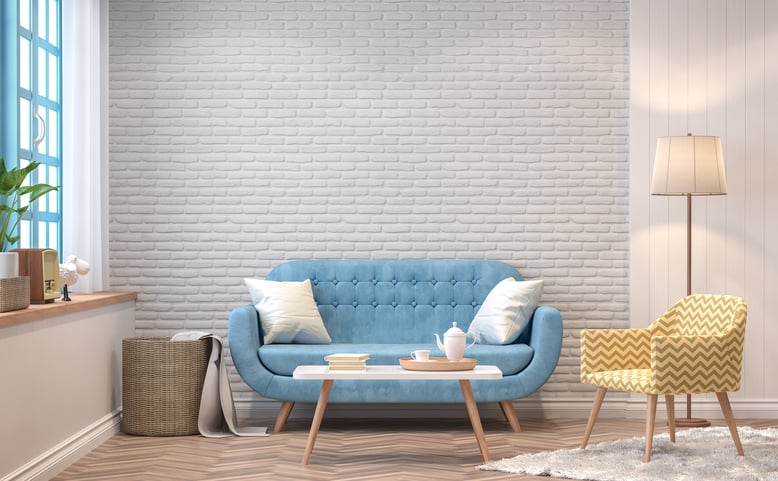 Adopt a "less is more" mindset when it comes to your home. The less knick-knacks you have collecting dust, the better. When surfaces are free of clutter, you can clean them better and more often. After you've gathered up the items you are comfortable parting ways with, make a little money by selling them online or hosting a small garage sale. Money saving tip: Ditch the overpriced dusters and opt for old cotton socks instead. It's super easy to just slide them on and get down to business. Plus, you can rewash them for unlimited cleaning sessions. We think kids will love this fun trick too, which means they just might help you take on spring cleaning (the more working hands, the better).
Adopt a "less is more" mindset when it comes to your home. The less knick-knacks you have collecting dust, the better. When surfaces are free of clutter, you can clean them better and more often. After you've gathered up the items you are comfortable parting ways with, make a little money by selling them online or hosting a small garage sale. Money saving tip: Ditch the overpriced dusters and opt for old cotton socks instead. It's super easy to just slide them on and get down to business. Plus, you can rewash them for unlimited cleaning sessions. We think kids will love this fun trick too, which means they just might help you take on spring cleaning (the more working hands, the better).
2. Leave The Bad Stuff At The Door
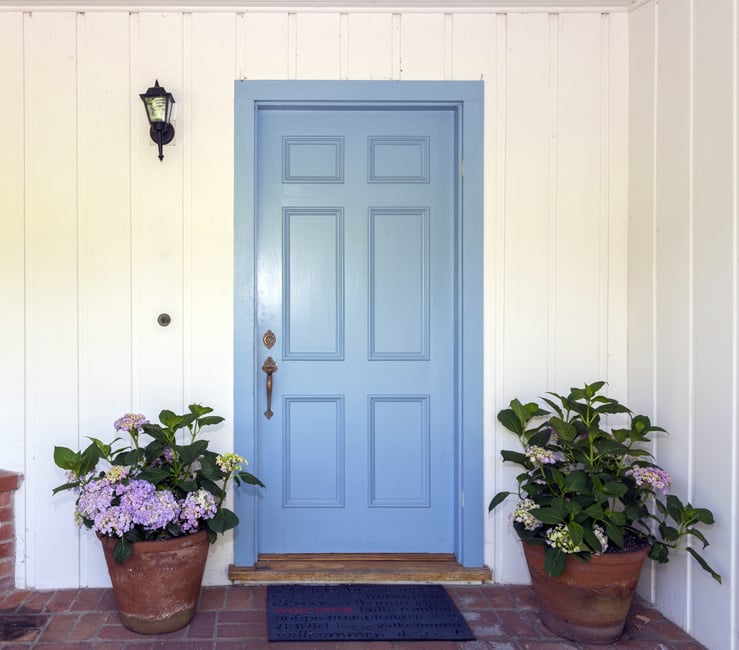
This is a tough one to digest, but to help free your home of annoying allergens, you'll need to keep your windows shut as much as possible. Yes, having the windows open is a staple to the springtime routine, but it also opens up your home to unwanted allergens, especially pollen. Make sure your windows stay closed on your worst allergy days, but be sure to follow your local weather station's forecast to see what days will have a low pollen count and allow you to crack them open.
In addition to closing your windows, you'll also need to invest in durable doormats on both the outside and inside of your front and back doors. Not only is their job to trap dirt from your shoes, but pesky allergens you may track in also. Have your guests wipe their feet off thoroughly before entering your home and ask everyone to leave their shoes at the door. If they track throughout the house, they're more likely to leave behind allergens from outside. Dr. Doormat brand doormats are made of a special material designed for confining allergens.
3. Vacuum Often
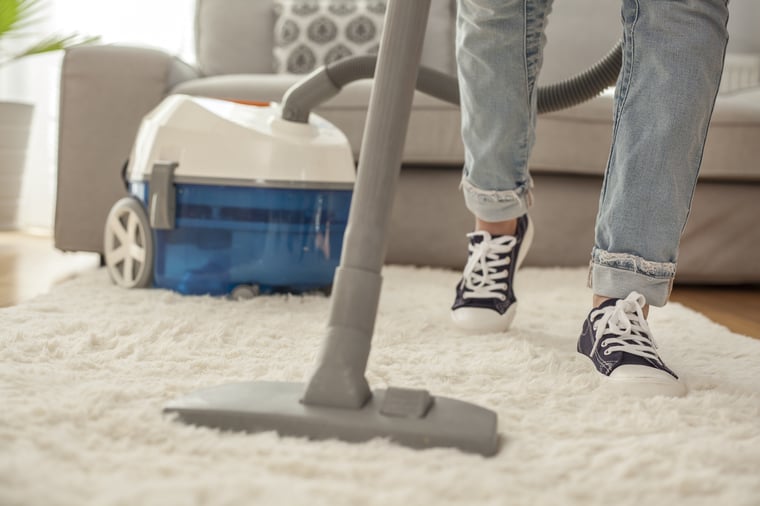 Homes with carpeting and area rugs are more likely to harbor allergens, so if you fit that list, make sure your vacuum can stand up to the job. Look into upgrading to a vacuum with a HEPA filter designed to filter allergens specifically, so you aren't blowing allergens into the air while cleaning. And don't limit yourself to just the floor - vacuum furniture, window sills, walls, light fixtures, vents, and all those nooks and crannies in between. Keep a solid routine of deep clean vacuuming every 2-3 weeks during the spring to ensure you're keeping your space clear of allergens.
Homes with carpeting and area rugs are more likely to harbor allergens, so if you fit that list, make sure your vacuum can stand up to the job. Look into upgrading to a vacuum with a HEPA filter designed to filter allergens specifically, so you aren't blowing allergens into the air while cleaning. And don't limit yourself to just the floor - vacuum furniture, window sills, walls, light fixtures, vents, and all those nooks and crannies in between. Keep a solid routine of deep clean vacuuming every 2-3 weeks during the spring to ensure you're keeping your space clear of allergens.
4. Get A Humidifier
.jpeg?width=778&height=553&name=AdobeStock_123338611(1).jpeg) Humidifiers have one purpose - to purify the air - which helps tremendously when allergy and cold/flu season hits. Running a humidifier in the most trafficked rooms of your home will help your allergy symptoms subside and lessen the amount of dust mites in the air. Not sure what kind of humidifier to buy? Here's a list of the Top 5 Humidifiers for people with allergies. Don't forget to clean your humidifier's working parts and regularly change the filter so it works to its full potential.
Humidifiers have one purpose - to purify the air - which helps tremendously when allergy and cold/flu season hits. Running a humidifier in the most trafficked rooms of your home will help your allergy symptoms subside and lessen the amount of dust mites in the air. Not sure what kind of humidifier to buy? Here's a list of the Top 5 Humidifiers for people with allergies. Don't forget to clean your humidifier's working parts and regularly change the filter so it works to its full potential.
5. Clean Your Bedding & Curtains Frequently
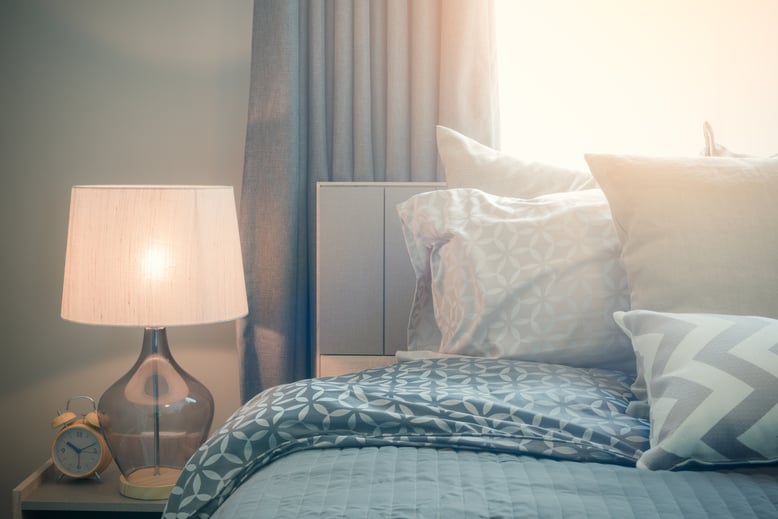 Your bedding accumulates a lot of germs, including allergens you bring home with you. Cleaning your bedding every 1-2 weeks will help continuously get rid of those annoying allergens and keep your sleeping arrangements nice and tidy. Consider buying allergy-friendly bedding to help your chances of a peaceful night's sleep even more. The Asthma & Allergy Friendly Certification Program tests blankets, comforters/duvets, mattress pads, pillowcases, and more, to determine if they have physical or chemical properties that are likely to irritate asthma and/or allergy symptoms. You can find those tested products here.
Your bedding accumulates a lot of germs, including allergens you bring home with you. Cleaning your bedding every 1-2 weeks will help continuously get rid of those annoying allergens and keep your sleeping arrangements nice and tidy. Consider buying allergy-friendly bedding to help your chances of a peaceful night's sleep even more. The Asthma & Allergy Friendly Certification Program tests blankets, comforters/duvets, mattress pads, pillowcases, and more, to determine if they have physical or chemical properties that are likely to irritate asthma and/or allergy symptoms. You can find those tested products here.
You should also wash your window treatments frequently as your windows are a hot spot for dust, specifically. If you can, ditch the curtains altogether and opt for dust-free window blinds. Here are the most commonly recommended window treatments for allergy sufferers.
6. Prevent Mold
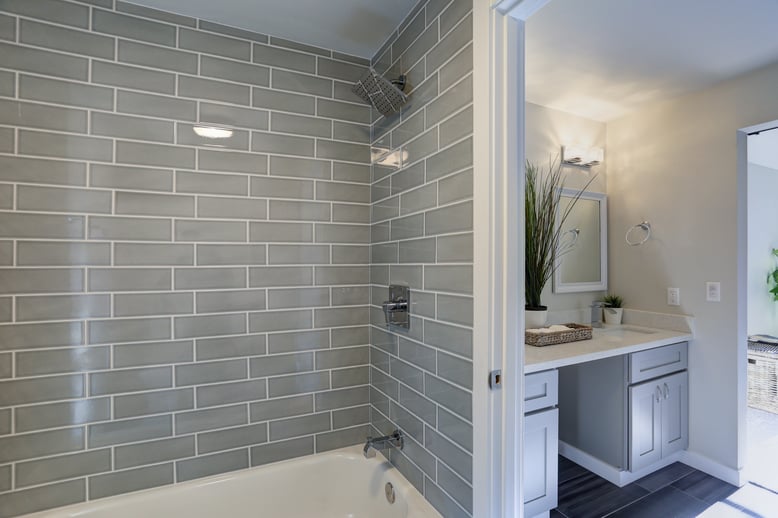 For those allergic to mold, making sure your home is mold-free at all times is a top priority. So, making sure that areas prone to mold like your bathroom, kitchen, and basement are dry, is key. Here are some tips for keeping each area clean.
For those allergic to mold, making sure your home is mold-free at all times is a top priority. So, making sure that areas prone to mold like your bathroom, kitchen, and basement are dry, is key. Here are some tips for keeping each area clean.
In the bathroom:
- Utilize your bathroom fan every time you shower and keep it clean and clear of dust so the moisture can make its way up and out of the room. It's best to keep it running for up to 30 minutes after each shower so that any and all leftover moisture gets taken care of. If you don't have an overhead fan, crack your window open to keep moisture from building up in the space.
- Go over your tile work with a water-proof grout annually to keep it sealed and free of that ugly black mold.
In the kitchen:
- Clean in and behind your refrigerator regularly, as lots of spills happen in this area of the kitchen, leaving a breeding ground for mold.
- Run your garbage disposal daily and pour straight vinegar down it weekly to clear it of any premature mold growth.
- Always run your exhaust fan when cooking over the stove to keep steam out of the space.
- Opt for a trashcan that only holds a day's worth of trash. The more frequently you take the trash out, the less chance there is for mold to grow.
In the basement:
- If you have a damp basement, place a dehumidifier in the space and run it constantly.
- Keep plants out of the basement as they will attract moisture and in turn, mold.
- Avoid storing wood in the basement as it naturally attracts mold, especially if it soaks up moisture of any kind.
- Take care of spills or leaks immediately. The longer you leave a leak unattended, the more likely you are to see mold.
7. Go All-Natural
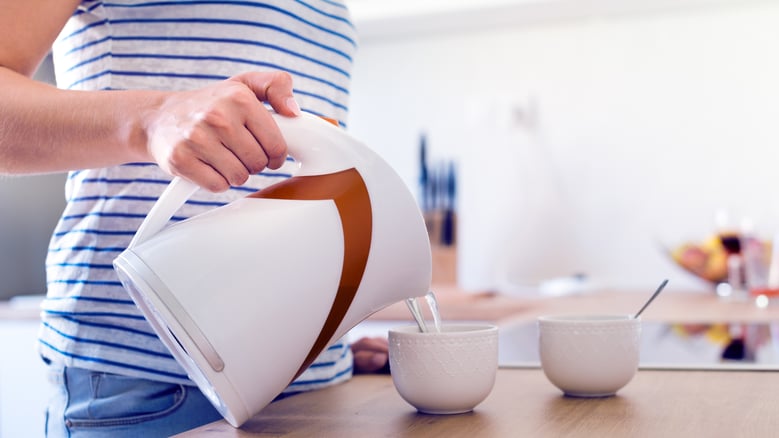 There are plenty of all-natural remedies proven to help ease allergy symptoms. For the chronic-sneezers out there, try these solutions recommended by Health Cabbage.
There are plenty of all-natural remedies proven to help ease allergy symptoms. For the chronic-sneezers out there, try these solutions recommended by Health Cabbage.
Peppermint Oil: Add a drop or two of this antibacterial oil to a bowl of hot water and inhale the steam to help clear your nasal passages.
Chamomile Tea: The herb, chamomile, has natural antihistamine properties that give relief from constant sneezing. Drink a cup of this tea before you go to bed and wake up sneeze-free.
Ginger: Because ginger has anti-inflammatory, antioxidant, and antihistamine properties in it, it's great for treating allergies that cause mucus build-up and sneezing. If you don't think you can stomach eating it raw, wash, peel, and crush ginger root and extract the juice. You can even mix it with honey for better taste. It only takes 1-2 teaspoons twice a day to help stop sneezing.
Garlic: While it may be smelly, garlic has excellent anti-bacterial, anti-viral, and anti-allergic properties great for preventing sneezing episodes. Crush 4-5 cloves of garlic to make a paste you can inhale. This will surely clear your nasal passages.
Fenugreek Seeds: These tiny wonder seeds have the ability to not only help your sneezing but relieve you of a runny or stuffy nose also. Add 2-3 teaspoons of the seeds into boiling water, let it sit for a few minutes, and drain the mixture. Depending on how bad your allergies are, drink this 2-3 times a day.
It's important to remember that you don't have to drive yourself crazy trying to apply all of these tips to your lifestyle this spring. Once you find out your main allergy-triggers, tackle them head on with a few of the suggestions above. After all, it's impossible to live in a perfectly sanitary bubble. However, it is possible to live your best life (cliché, we know), and we're pretty sure your best life does not involve suffering from allergies.


Your Comments :